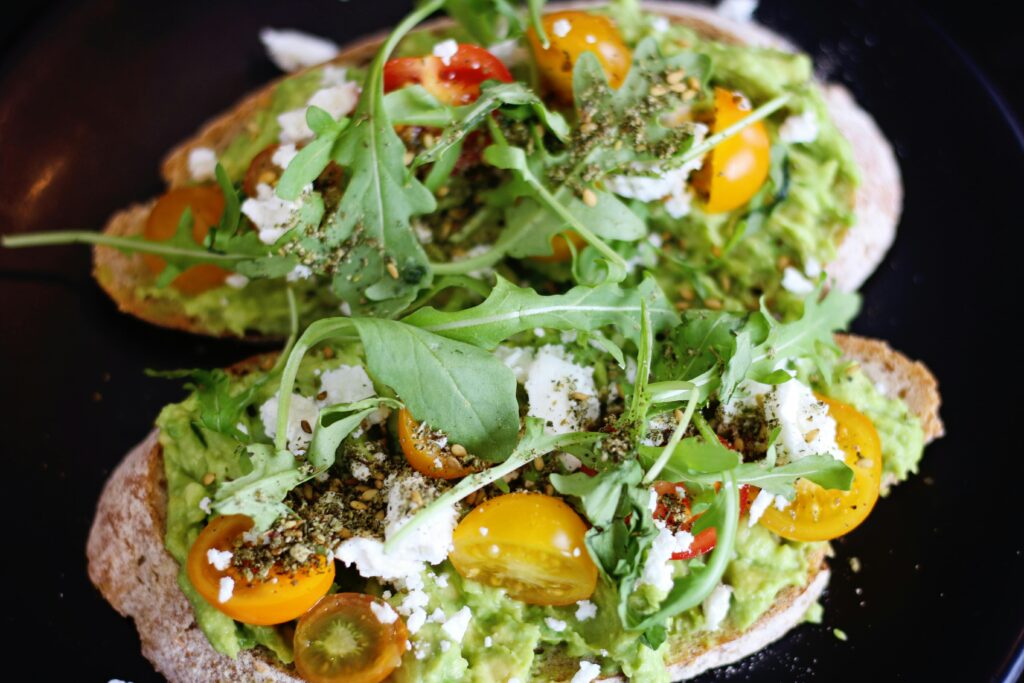When learning about post-workout recovery, understanding the roles of protein, carbs, and fats in your diet is crucial for maximizing the benefits of your exercise routine. Each macronutrient plays a unique role in the body’s recovery process, emphasizing the importance of striking the right balance.

Protein:
After exercise, the body’s muscles undergo protein breakdown, necessitating adequate protein intake for repair and growth. Splitting protein intake across the day in small, regular intervals ensures a steady supply of amino acids for muscle repair. Studies suggest consuming 20-40 grams of protein every 3 to 4 hours to optimize recovery.
Carbohydrates:
Carbohydrates serve as the body’s primary fuel source during exercise, depleting glycogen stores. Consuming carbs post-workout helps replenish glycogen stores, especially crucial for endurance activities. Combining carbs with protein opost-exercise enhances protein and glycogen synthesis. Recommendations suggest a ratio of 3 to 1 (carbs to protein) for rapid recovery, particularly for endurance athletes. So 40 grams of protein and 120 grams of carbs.
Fat:
While there’s limited evidence on fat intake post-workout, studies suggest it may not hinder recovery. Including some fat in your post-workout meal could provide benefits without compromising recovery. However, further research is needed to ascertain its impact conclusively.
Timing of Post-Workout Nutrition:
The body’s ability to rebuild glycogen and protein is heightened immediately after exercise. Thus, consuming a combination of carbs and protein soon after a workout is recommended. While earlier guidance suggested a narrow post-exercise window, recent research suggests the window may be wider, extending to several hours post-workout.
Foods to Eat After Exercise:
Opt for easily digestible foods rich in carbs and protein to promote faster nutrient absorption.

Carbs
- sweet potatoes
- chocolate milk
- quinoa and other grains
- fruits (such as pineapple, berries, banana, kiwi)
- rice cakes
- rice
- oatmeal
- potatoes
- pasta
- whole grain bread
- edamame
Protein
- animal- or plant-based protein powder
- eggs
- Greek yogurt
- cottage cheese
- salmon
- chicken
- protein bar
- tuna
Fats
- avocado
- nuts
- nut butters
- seeds
- trail mix (dried fruits and nuts)
Hydration:
Proper hydration is essential for optimal recovery and performance. Replenishing fluids lost through sweat during exercise is crucial, especially if another workout is planned within 12 hours. Water or electrolyte drinks are recommended depending on the intensity of the workout.
In conclusion, post-workout nutrition plays a vital role in optimizing recovery, replenishing energy stores, and supporting muscle repair and growth. By understanding the roles of protein, carbs, fats, and proper hydration, you can enhance the benefits of your exercise regimen and achieve your fitness goals more effectively.
EUROPEAN PERSPECTIVE
Advices from La Medecine du Sport
Within 30 minutes after a workout, a snack can aid recovery by replenishing used nutrients (carbohydrates, sodium, potassium), replacing lost water, restoring glycogen stores, and repairing muscle damage. It is also recommended to drink plenty of fluids. In the following hours, meals should include carbohydrates, sodium (such as from vegetable juice, olives, soups), and potassium (from vegetables, oranges, bananas, dried fruits, yogurt), especially if there was significant sweating.
sources: https://www.healthline.com/nutrition/eat-after-workout#TOC_TITLE_HDR_5 & https://www.lamedecinedusport.com/les-aliments-a-eviter-avant-entrainement/#:~:text=Avant%20un%20entraînement%2C%20il%20faut,L’hydratation%20est%20essentielle.



